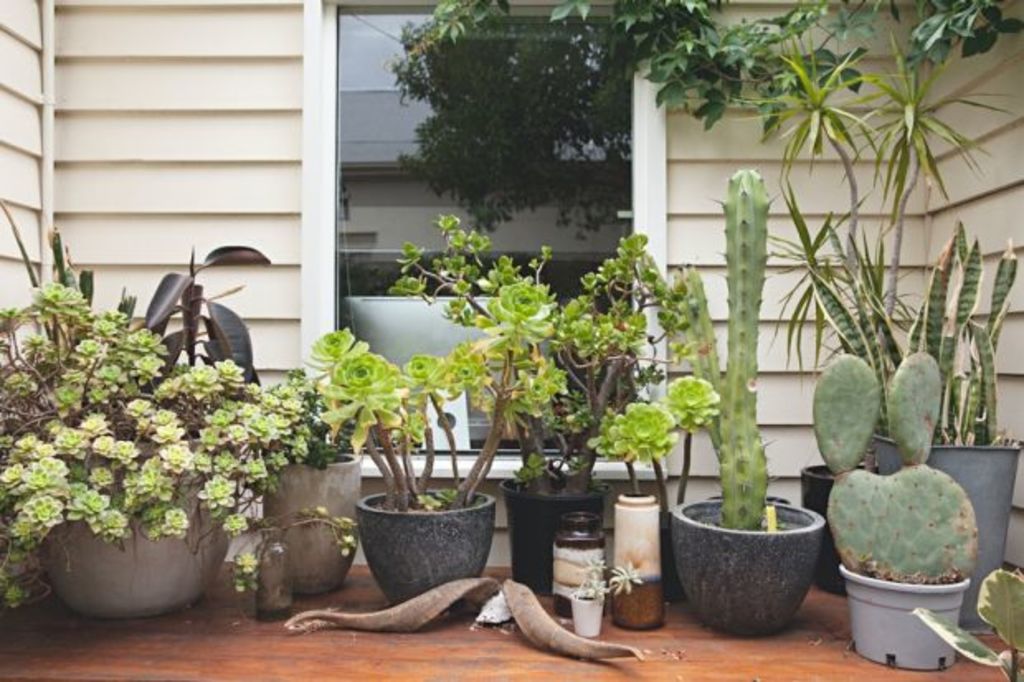How to have a garden when you're a renter

Aside from producing healthy fruit and vegies, having your own garden can also make a place feel more like home.
But if you’re renting, is it really worth the time, money and effort to establish a garden? After all, you’re just going to eventually have to move anyway.
Horticulturalist Justin Calverley, who regularly runs gardening workshops through his business Sensory Gardens, says there are several challenges facing renters with green thumbs.
“The overriding one is that you just don’t have permanency and gardens have this air of being permanent and setting down roots,” he says.
“They (renters) are reluctant to put anything down because their life is so mobile and temporary … but that should not be a reason for people to stop gardening.”
Calverley, who rented for more than two decades, knows first-hand some of the problems that can crop up. In an extreme case, he once had a landlord who specified in the lease that tenants were not allowed to break the soil – despite there being a huge yard.
But where there’s a will, there’s a way. Calverley overcame that particular problem by creating a garden planted in 72 polystyrene boxes that he sourced for free.
“They were just a means for me to continue doing it in a place that was devoid of soil,” he says. “Rather than big terracotta pots, polystyrene is super lightweight and a fantastic incubator.”
Calverley grew vegetables and herbs in the boxes, and fruit trees in larger pots that could also be transported on his next move.
He says most leases stipulate that you must leave the garden in the same condition as you found it.
“In theory, anything you put in you can take out,” says Calverley. “It’s very important to take photos of the garden the day you move in, so you have a reference.”
Those on a tight budget shouldn’t be put off having a garden. Calverley suggests using cuttings, learning to propagate and asking your local fruit shop for free polystyrene boxes.
“Plants you can get for free but it’s difficult to make your own soils cheaply. Do your research about no-dig gardens and make your own soils.”
Sustainable living teacher Sam Green, who rents in Richmond, in Melbourne’s inner-city, says that there are very few barriers for renters who enjoy gardening.
“Probably the main struggle is longevity of lease,” she says. “(But) if you plant in big pots and you’ve got a little bit of muscle, you can always move them.
“Probably the bigger obstacle is a lack of space or a lack of sunlight.”
Green’s front yard is flourishing with herbs and vegetables, and neighbours often bring over their food scraps for her to compost.
Her herbs and vegetables are grown in apple crates, not directly into the ground, but Green says that’s more to do with the “rock-hard soil” in her front yard.
She suggests renters take into account the length of their lease when deciding when – and what – to plant.
“Even a three-month lease, that’s not going to be long enough to grow tomatoes or eggplant or anything like that, but you can still grow herbs and leafy greens in six to eight weeks,” says Green.
If you don’t have any ground to work with, Green says you can make the most of other spaces – such as nature strips or balconies.
“You only need the tiniest, tiniest verandah to grow herbs and leafy greens.”
Toiling in your neighbour’s yard, and sharing the produce, is another way to go, as is tracking down vacant land or sites waiting for development in your local area. Green says that by contacting your council’s planning department, you can get a gauge on how far off development might be.
“Another really good idea possibly for renters would be getting a plot in a community garden. You might change places but your plot is still there,” says Green. She notes that some community gardens have communal spaces that have just a small membership fee.
Green believes that the importance of having your own garden – renter or not – cannot be understated.
“It’s so important because not only is it important to have fresh, chemical-feel nutritious food, which is getting more difficult to get from the standard supermarket, but gardening has a really lovely therapeutic aspect,” she says. “Getting your hands in the soil … is so good for the soul.”
We thought you might like
States
Capital Cities
Capital Cities - Rentals
Popular Areas
Allhomes
More







